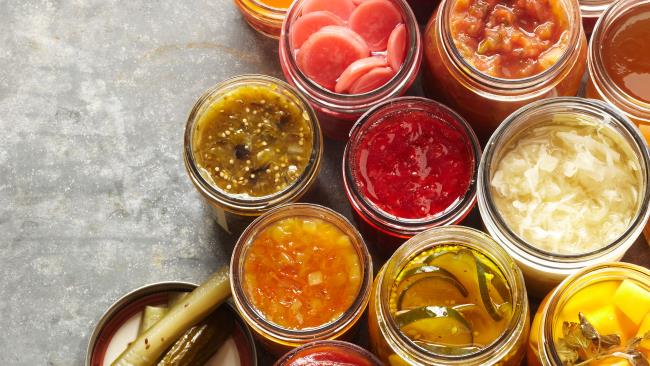
The trillions of tiny creatures living in our bodies have been making headlines lately—and for good reasons. These good bacteria—particularly those in our gut—may improve digestion, boost immunity and—according to some preliminary studies—they may even help us get leaner. Research is still emerging on just how important these mighty microbes might be for our health, but the early results are promising. There’s plenty you can do now to encourage their growth. The most effective way is by eating foods packed with probiotics—good bacteria that live in your gut and show up in fermented foods. Add these seven fermented foods to your diet for a healthy dose of probiotics.
—Lisa D’Agrosa, M.S., R.D.
1. Tempeh
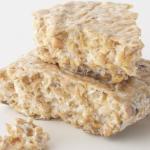
Tempeh is made from naturally fermented soybeans. With a slightly nutty flavor, it’s a good source of probiotics—and, because it contains all the essential amino acids, it’s a complete source of vegetarian protein
2. Miso
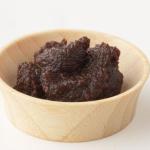 A fermented paste made from barley, rice or soybeans, miso adds a nice umami flavor to dishes. It’s bold, so a little goes a long way (which is good because it’s also high in sodium).
A fermented paste made from barley, rice or soybeans, miso adds a nice umami flavor to dishes. It’s bold, so a little goes a long way (which is good because it’s also high in sodium).
3. Sauerkraut
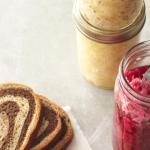 Made from just cabbage and salt, this fermented food delivers a healthy dose of probiotics and fiber.
Made from just cabbage and salt, this fermented food delivers a healthy dose of probiotics and fiber.
4. Yogurt
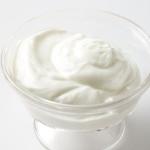 Yogurt labeled with the “Live & Active Cultures” seal guarantees 100 million probiotic cultures per gram (about 17 billion cultures in a 6-ounce cup) at manufacturing time. Even yogurts without this seal will usually contain some probiotics.
Yogurt labeled with the “Live & Active Cultures” seal guarantees 100 million probiotic cultures per gram (about 17 billion cultures in a 6-ounce cup) at manufacturing time. Even yogurts without this seal will usually contain some probiotics.
5. Kefir
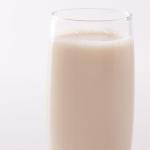 A fermented milk drink—it tastes a bit like drinkable yogurt—kefir is full of calcium and probiotics.
A fermented milk drink—it tastes a bit like drinkable yogurt—kefir is full of calcium and probiotics.
6. Kombucha
 Kombucha is a tangy, effervescent tea—typically black or green. The drink is often flavored with herbs or fruit. You can find it in many natural foods stores and some farmers’ markets. A tiny amount of alcohol is sometimes produced during fermentation—usually less than 0.5 percent alcohol by volume. However, some kombuchas have been found to contain up to 2 or 3 percent alcohol.
Kombucha is a tangy, effervescent tea—typically black or green. The drink is often flavored with herbs or fruit. You can find it in many natural foods stores and some farmers’ markets. A tiny amount of alcohol is sometimes produced during fermentation—usually less than 0.5 percent alcohol by volume. However, some kombuchas have been found to contain up to 2 or 3 percent alcohol.
7. Kimchi
 Sauerkraut’s Korean cousin, this fermented cabbage is spicy. Look for it in the refrigerated section near other Asian ingredients or pickles and sauerkraut.
Sauerkraut’s Korean cousin, this fermented cabbage is spicy. Look for it in the refrigerated section near other Asian ingredients or pickles and sauerkraut.
From www.eatingwell.com with permission. © 2014 Eating Well Inc.
Photo Credit: Blaine Moats Photo Courtesy: Jason Donnelly, Kristada Panichgul, The Shed, Peden & Munk Photographers, Peter Ardito


